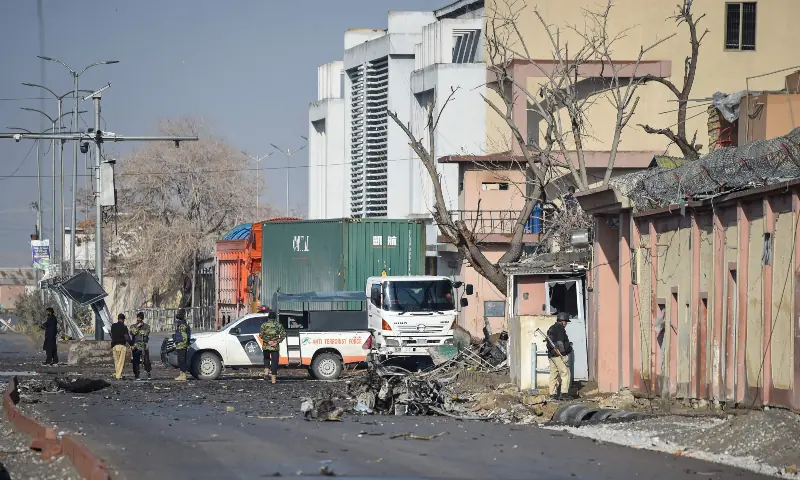On December 6, 1992, the Babri Mosque in Ayodhya, Uttar Pradesh, was demolished by a mob mobilized by Hindu nationalist forces. This moment marked a pivotal shift in India’s political and social trajectory. The event signified the rise of Hindutva, an ideology advocating Hindu cultural and political supremacy. It also highlighted the deepening fractures in India’s pluralistic fabric. Thirty-two years later, Hindutva nationalism has extended its influence far beyond India’s borders. This poses challenges to global democracy, inclusivity, and human rights.
Institutionalizing Exclusion
In the evolving landscape of global politics, few ideologies have been as divisive and ideologically potent as Hindutva nationalism. Born from early 20th-century political mobilization in India, this ideology has transcended its domestic origins to influence societies globally. Hindutva nationalism has ascended significantly under Prime Minister Narendra Modi. This rise has deepened societal divisions within India and left a concerning imprint on Western democracies such as the United States, the United Kingdom, and Canada. By fusing religious nationalism with political authoritarianism and systematic marginalization, it poses a serious challenge to key democratic principles. These include democracy, pluralism, and human rights, which are foundational to modern global governance.
Also See: From Secular to Sectarian? Tracing Hindu Extremism in India
Hindutva’s Impact in India
At its core, Hindutva nationalism advocates for Hindu cultural and political supremacy, relegating religious minorities to second-class status; the subordinate roles in the socio-political hierarchy. Under Modi’s leadership, this ideology has been entrenched in India’s governance structures, fostering systemic discrimination. Marginalized groups such as Muslims have faced widespread socio-economic and political exclusion, ranging from housing segregation and mob violence to discriminatory laws targeting religious practices. Sonia Joseph’s stark words— “In Modi’s India, Muslims are being lynched every day”—serve as a grim reminder of this reality.
Beyond violence, a series of discriminatory laws have targeted personal freedoms and religious practices. Anti-conversion legislation criminalizes religious conversions under dubious pretenses, while laws banning interfaith marriages stifle individual choice. Hijab bans and restrictions on beef consumption disproportionately target Muslims, alienating them further. Even vulnerable groups like Dalits, Christians, and Adivasis face systematic exclusion, revealing the breadth of Hindutva’s discriminatory reach.
This institutionalized oppression erodes India’s foundational principle of secularism. Once celebrated for its multiculturalism, India now stands as a cautionary tale of how majoritarian politics can dismantle inclusive governance. The implications are not confined to India’s borders; the exclusion of minorities resonates globally,fueling extremism and undermining international solidarity against exclusionary ideologies.
The Babri Mosque Anniversary: A Defining Moment in Hindutva’s History
The anniversary of the Babri Mosque demolition on December 6, 1992, holds particular significance in the context of Hindutva politics. The destruction of the mosque, followed by the subsequent rise of Hindu nationalism, marked a turning point in India’s political trajectory. For many, the event symbolized the deepening rift between India’s Hindu majority and its Muslim minority, creating an enduring legacy of communal violence and religious intolerance.
The Babri Mosque tragedy catalyzed the consolidation of Hindutva forces under the Bharatiya Janata Party (BJP). This ultimately led to the establishment of the Ram Mandir in Ayodhya after decades of political and legal struggle. The Ram Mandir’s inauguration represents a significant political victory for Hindutva. It symbolizes not only the reclamation of a religious site but also the institutionalization of a divisive narrative. This narrative actively marginalizes Muslim identity in India.
A Symbol of Hindutva’s Rise
In the broader context, this shift towards the Ram Mandir has implications both within India and globally. Internally, it fuels deeper divisions between Hindus and Muslims. The ideological premise of Hindutva seeks to erase the Muslim presence from India’s cultural and political landscape. Externally, the establishment of the Ram Mandir signals a dangerous consolidation of Hindutva ideology. This model is now being exported to other parts of the world through India’s growing diaspora. The elevation of the Ram Mandir is more than a religious or cultural milestone. It has become an ideological symbol of Hindu political ascendancy. This contributes to a broader agenda aimed at asserting Hindu supremacy, not just in India, but across the globe.
This shift raises critical questions: How will the rise of Hindutva affect India’s internal cohesion, especially with religious minorities? Will the Ram Mandir become a focal point for further radicalization? And how will this growing polarization impact India’s relationship with the Muslim world, given the Ram Mandir’s political significance? These are questions that not only affect India’s future but have global ramifications, particularly for countries with significant Muslim populations and growing Hindu diaspora communities.
Exporting Hindutva: A Soft Power Strategy
Hindutva’s ambitions extend far beyond India. Through its diaspora networks, it has systematically exported its ideology to Western democracies. Organizations such as the Rashtriya Swayamsevak Sangh (RSS) have long used cultural outreach as a vehicle for political influence. Edward TG Anderson has documented how texts like Hindus Abroad – Dilemma: Dollar or Dharma? encourage expatriates to prioritize Hindutva ideology over their integration into pluralistic societies.
This outreach has borne fruit in troubling ways. In the United States, surveys by groups like the Indian-American Muslim Council (IMAC) reveal rising discrimination among Muslim communities, fueled by Hindutva-inspired rhetoric. In Canada, clashes between Hindutva-aligned groups and Sikh activists reflect the transnational consequences of India’s ideological conflicts. These efforts are part of a larger strategy to use soft power as a means of influencing global narratives and securing international legitimacy for policies that marginalize minorities.
Hindutva and the Far-Right Nexus
One of the most alarming facets of Hindutva’s global spread is its alignment with far-right movements in Western nations. Driven by shared Islamophobia and anti-immigrant sentiments, these alliances amplify hate speech and deepen societal divides. Rajiv Sinha, Director of Hindus for HR (UK), has highlighted how Hindu supremacist groups in the United Kingdom have aligned with white supremacists, creating a united front against minorities.
The political implications of these alliances are profound. In the UK, 60 Hindutva-aligned organizations endorsed a manifesto supporting 25 candidates in local elections, leveraging democratic systems to propagate exclusionary policies. In the United States, Hindutva’s alignment with conservative ideologies has fueled Islamophobic narratives, contributing to rising anti-Muslim sentiments. These alliances reveal a disturbing interconnectedness between global far-right forces, undermining democratic values and exacerbating communal tensions.
The Human Cost: Minority Persecution in India
The social impact of Hindutva nationalism is particularly stark in India’s conflict zones. In Manipur, for instance, over 360 churches have been demolished, 7,000 homes looted and burned, and 41,000 people displaced, according to the North American Manipur Tribal Association. Such acts are not isolated incidents but part of a broader strategy to suppress minority identities under the pretext of restoring Hindu unity.
These developments have far-reaching implications. By targeting religious and ethnic minorities, Hindutva nationalism fosters grievances that can spill over into regional conflicts. The systematic persecution of minorities also undermines India’s social fabric, creating conditions ripe for unrest and instability. In a globalized world, the reverberations of such unrest are not confined to one nation but can destabilize entire regions.
Global Implications: A Challenge to Democracy
Hindutva nationalism poses a unique challenge to global democracy. Its exportation to Western democracies threatens to erode the pluralistic values that underpin these societies. Incidents involving Hindutva-aligned diaspora groups in Canada and the US highlight how the ideology leverages cultural ties to influence political systems, often to the detriment of minority communities.
The international community must recognize that Hindutva nationalism is not merely an internal Indian issue. It represents a global threat to democratic values and human rights. By aligning itself with far-right movements and spreading divisive narratives, Hindutva nationalism undermines the ideals of inclusion and equality that the modern world seeks to uphold.
The Path Forward: International Accountability
The global spread of Hindutva nationalism demands a coordinated international response. Countries must scrutinize India’s domestic policies and their external ramifications, ensuring that their own democratic systems are not compromised. Recent incidents involving diaspora influence in Canada and the US serve as a wake-up call, emphasizing the need for vigilance against ideological extremism.
Holding India accountable for its actions is not merely a matter of principle but a necessity for preserving global stability. Nations must ensure that their engagement with India does not inadvertently legitimize policies that marginalize minorities and erode democratic norms. By addressing the roots of Hindutva nationalism, the international community can take a stand for the values of pluralism and coexistence.
Conclusion
Hindutva nationalism is more than an ideological movement; it is a global threat to the principles of democracy, inclusivity, and human rights. Its rise under Modi’s regime has institutionalized exclusion in India and exported divisive narratives to the world. The anniversary of the Babri Mosque demolition, alongside the symbolic rise of the Ram Mandir, represents a key turning point in this ideological journey. The international community must act decisively to counter its spread, recognizing that the stakes are not merely national but global. In an era where the values of democracy and pluralism are under siege, combating Hindutva nationalism is an essential step toward building a more inclusive and equitable world.
The views expressed in this article are the author’s own. They do not necessarily reflect the editorial policy of the South Asia Times

![Hindutva nationalism, born in India, is spreading its divisive ideology globally, challenging democracy, inclusivity, and human rights. [Image via SAT Creatives]](https://southasiatimes.org/wp-content/uploads/2024/12/SAT-Web-Banners-71.webp)





